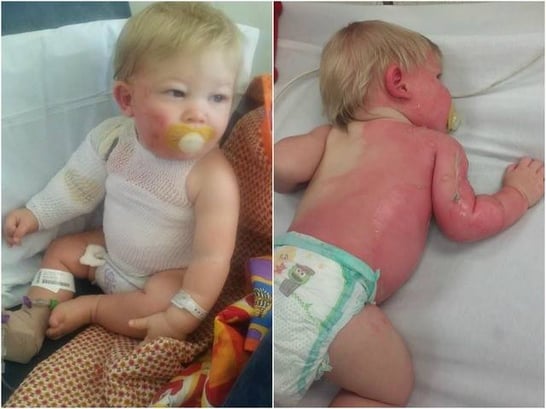 Summer is all about fun! Everyone should enjoy their time over the next few months, but please take a minute to be aware and safe while youdo. Consider water, sun and mosquito safety as well as preventing injuries in all of your warm weather activities. Here’s some information to help you and your loved ones have the best summer ever!
Summer is all about fun! Everyone should enjoy their time over the next few months, but please take a minute to be aware and safe while youdo. Consider water, sun and mosquito safety as well as preventing injuries in all of your warm weather activities. Here’s some information to help you and your loved ones have the best summer ever!
Master water safety
Water-related activities are popular for getting physical activity and have many health benefits. Here are some tips to stay safe while having fun.
- Learn how to prevent recreational water illnessesand help protect yourself and your kids.
- Help kids get H2O Smartz about water safety.
Drownings are the leading cause of injury death for young children ages 1 to 4, and three children die every day as a result of drowning.
- Always supervise children when in or around water. A responsible adult should constantly watch young children.
- Teach kids to swim. Formal swimming lessons can protect young children from drowning.
- Learn cardiopulmonary resuscitation (CPR). Your CPR skills could save someone’s life.
- Install a four-sided fence around home pools.
Recreational boating can be a wonderful way to spend time with family and friends. Make boating safety a priority.
- Wear a properly fitted life jacket every time you and your loved ones are on the water.
Beat the heat and sun
Heat-related illness happens when the body’s temperature control system is overloaded. Infants and children up to 4 years of age are at greatest risk. Even young and healthy people can get sick from the heat if they participate in strenuous physical activities during hot weather. For heat-related illness, the best defense is prevention.
- Never leave infants, children, or pets in a parked car, even if the windows are cracked open.
- Dress infants and children in loose, lightweight, light-colored clothing.
- Schedule outdoor activities carefully, for morning and evening hours.
- Stay cool with cool showers or baths.
- Seek medical care immediate if your child has symptoms of heat-related illness.
Just a few serious sunburns can increase you and your child's risk of skin cancer later in life. Their skin needs protection from the sun's harmful ultraviolet (UV) rays whenever they're outdoors.
- Cover up. Clothing that covers your and your child's skin helps protect against UV rays.
- Use sunscreen with at least SPF (sun protection factor) 15 and UVA (ultraviolet A) and UVB (ultraviolet B) protection every time you and your child go outside.
Keep mosquitos and ticks from bugging you this summer
Protect yourself and your family by preventing bites and diseases, like Zika, West Nile virus and Lyme disease, which can be transmitted by insects.
- Use an effective insect repellent while playing outdoors.
- Make your backyard a tick-safe zone.
- Check yourself and your children for ticks. Ticks are easy to remove.
Prevent Injuries
Each year in the United States, emergency departments treat more than 200,000 children ages 14 and younger for playground-related injuries. Falls at home and on the playground are a common cause of injury.
- Check to make sure that the surfaces under playground equipment are safe, soft, and well-maintained.
- Supervise young children at all times around fall hazards, such as stairs and playground equipment.
- Use stair gates, which can help keep a busy, active child from taking a dangerous tumble.
A concussion is a type of traumatic brain injury caused by a bump, blow, or jolt to the head that can change the way your brain normally works. Concussions can occur in any sport or recreation activity.
- Learn concussion signs and symptoms and what to do if a concussion occurs.
- Make sure kids and teens wear the right protective equipment for their sport or recreation activity.
Parents can take many actions to protect their children's health and safety at home.
- Stay smart around the house by following tips on fire prevention, microwave use, and living with pets.
- Learn healthy home tips for each room in the house.
Young workers have high job injury rates. Hazards in the workplace, inexperience, and lack of safety training may increase injury risks for young workers.
- Know their rights, employer and teen worker responsibilities, and what teens under 18 can’t do.
Stop the violence
- Kids can use electronic media to embarrass, harass, or threaten their peers. Take steps to prevent electronic aggression, a term that captures all types of violence that occur electronically.
- As teens develop emotionally, they are heavily influenced by their relationship experiences, including teen dating. Protect your children from teen dating violence. Nearly one in 10 teens reports having been hit or physically hurt on purpose by a boyfriend or girlfriend at least once over a year’s time.



 Children playing in sprinklers. A fun activity in the summer months. What could go wrong? Read on and find out.
Children playing in sprinklers. A fun activity in the summer months. What could go wrong? Read on and find out.